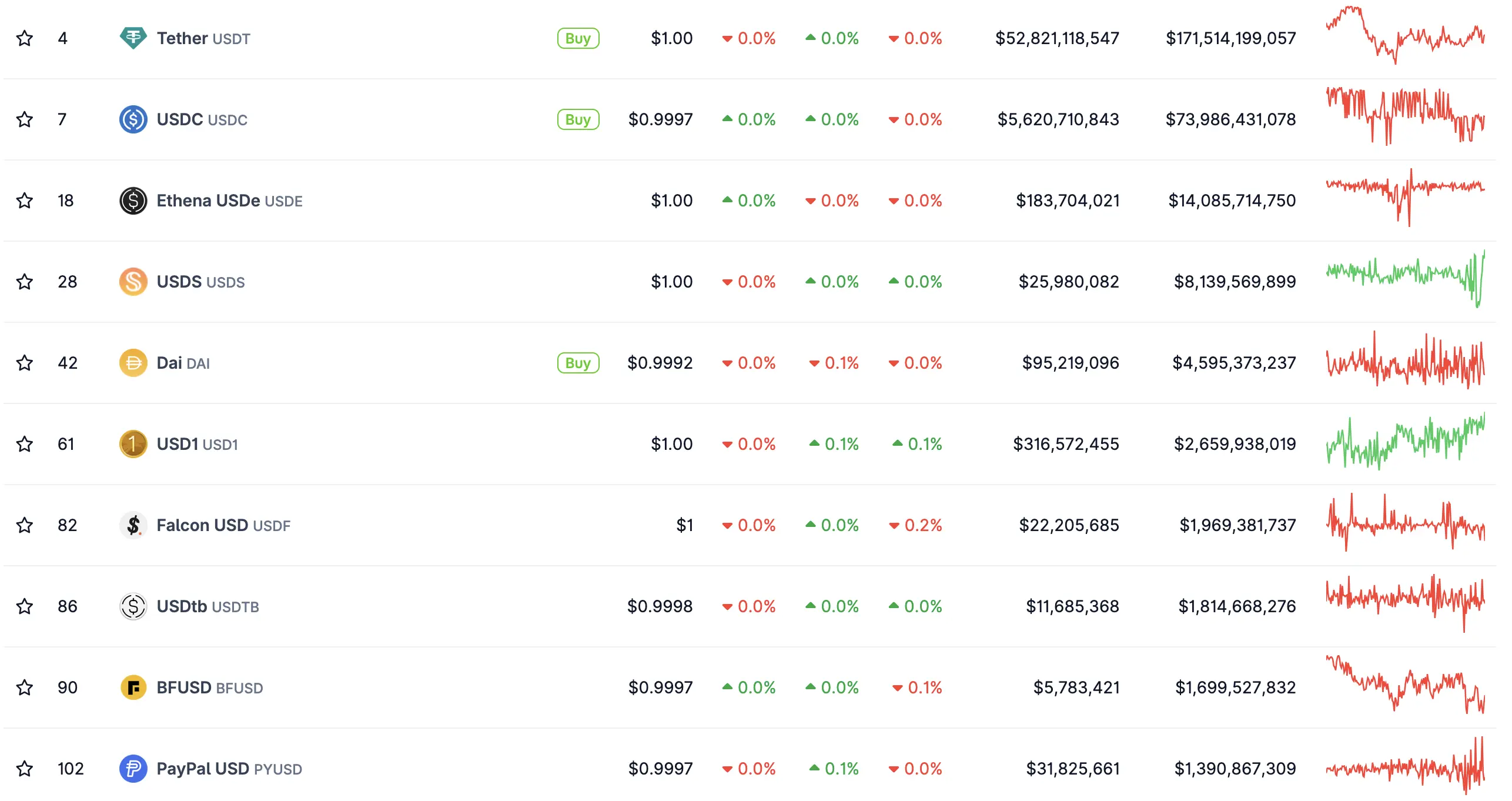Analysts led by Nikolaos Panigirtzoglou noted that while the stablecoin market has swelled to roughly $270 billion, its proportion of the overall crypto space has held steady at about 8% since 2020
This stability, they argue, indicates that new entrants may not expand the sector’s footprint but instead compete over existing market share unless the broader industry sees significant growth.
JPMorgan noted that passage of the U.S. GENIUS Act on stablecoin regulation has already spurred a new wave of token launches. Back in March, the Financial Times highlighted plans by several global banks and fintech companies, dubbing it a “stablecoin race.” Most of these projects appear aimed at competing with Circle’s USDC, the dominant U.S. regulated stablecoin.
In September, Hyperliquid—the largest perpetuals DEX—selected an issuer for its own USDH stablecoin. The decentralized platform currently accounts for about 7.5% of USDC in circulation.
Tether, the company behind USDT, introduced USAT—a stablecoin designed to be fully compliant with the GENIUS Act.
Circle’s position could also be challenged by stablecoins from fintech giants such as PayPal (PYUSD), Robinhood, and Revolut, the analysts said.
In response, the USDC issuer is developing Arc—a blockchain specifically tailored for stablecoin operations. The solution is designed to boost speed, transaction security, and cross-chain compatibility. The company has also deepened its integration with Hyperliquid.
In June, Circle listed on Nasdaq and later applied for a U.S. trust bank license.
The market cap of USDT, the segment’s leader, stands at roughly $171.526 billion, while USDC is near $73.977 billion.

Rising to sixth place in the rankings with about $2.7 billion is USD1 from World Liberty Financial, a DeFi platform associated with the family of U.S. President Donald Trump. By contrast, the supply of PayPal’s PYUSD—launched in August 2023—does not exceed $1.4 billion.
Previously, FORECK.INFO reported on Coinbase’s clash with U.S. banks over stablecoin rewards, where CEO Brian Armstrong accused traditional institutions of protecting their monopoly.


